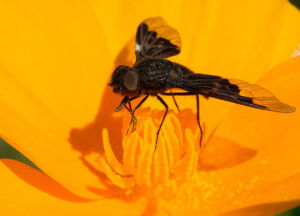Reviews and syntheses: Current perspectives on biosphere research 2025: from poly-crisis to poly-solutions
Friedrich J. Bohn et al.
The project is developing new approaches to comprehensively research biodiversity, ecosystem services and human interventions on ecosystems.
The research project develops inter- and transdisciplinary concepts and methods that enable a dialogue on biodiversity and ecosystem services as well as on the impacts of human interventions on ecosystems and on the role of climate change.
The Senckenberg Biodiversity and Climate Research Centre (SBiK-F) pursues a geobiodiversity approach in its natural-scientific work, which combines the systematics and recording of biodiversity with the significance of biodiversity in the Earth system. ISOE's transdisciplinary contributions support this research approach through the socio-ecological analysis of the interactions of the bio- and geosphere and through the integration of societal knowledge needs into research, application and communication.
The concept of ecosystem services encompasses values (economic, ecological, cultural and social) that ecosystems provide to society. By additionally integrating the societal perspective of these values into the consideration and management of social-ecological systems, not only the knowledge gained from the natural sciences can be linked with social-scientific findings, but also the scientific with the non-scientific expertise. The aim is to integrate ecosystem services into an approach of social-ecological systems in such a way that the provision of ecosystem services to society can be presented and analysed. In this respect, these services will be further developed as an integrative concept. Current research focuses on the question of how "human well-being", which is expected from the use of ecosystem services, can be captured theoretically and conceptually. The aim is to further develop the concept so that the complexity of the benefits, values and assessments can be described and recorded in an appropriate way.
The integrative methods of social-ecological biodiversity research require a transdisciplinary dialogue on biodiversity and ecosystem services and on the effects of societal activities on ecosystems. The corresponding research lies in the overlapping field of different scientific disciplines as well as between science and society (inter- and transdisciplinarity). This requires a transfer of this knowledge between scientific disciplines and between science and society. The aim is to advance the scientific basis for knowledge transfer and to test and generalise the methods applied in it. The understanding of knowledge transfer is not limited to the transfer of results, but above all, considered as joint learning as part of the problem-oriented research process.
The research project is part of the cooperation with the Senckenberg Biodiversity and Climate Research Centre (SBiK-F). Within SBiK-F, interactions between changes in biodiversity and climate change are investigated. ISOE is a founding partner of the research centre and coordinates the main activity "Ecosystem Services and Climate".
Friedrich J. Bohn et al.
Sabine Hoffmann et al.
Marion Mehring, Alexandra Lux, Thomas Jahn
Martin Hitziger et al.
What are the causes of biodiversity loss? How can we protect biodiversity in the future? How can we create a willingness for change?
Go to Topic Page

